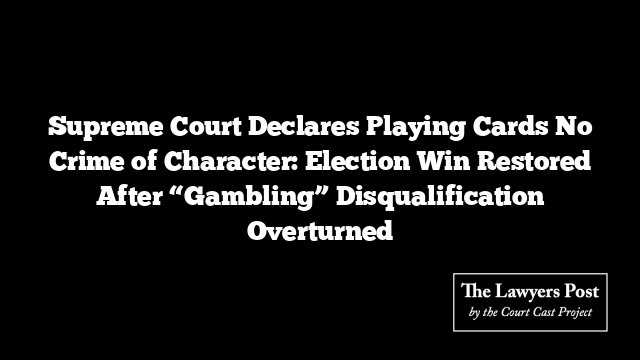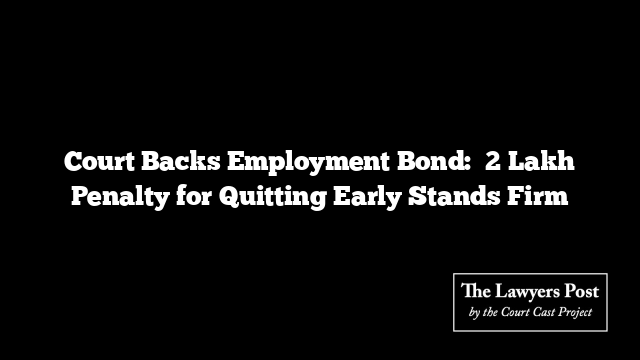In a landmark ruling, the Supreme Court put an end to a controversy that saw a man stripped of his elected position for allegedly “gambling in public” — specifically, for playing cards on the roadside. The apex court’s verdict is clear and refreshing: playing cards, in itself, does not amount to an act of moral turpitude.
The case unfolded when the man, elected with the highest votes to the Board of Directors of a cooperative society in Karnataka, faced disqualification after a conviction under a local gambling law. The accusation? That his card-playing was a criminal offense reflective of a serious moral failing. The lower authorities agreed, setting aside his election. The courts below upheld this, but the Supreme Court decisively reversed the decision.
Justices Surya Kant and N Kotiswar Singh emphasized that not every act that raises eyebrows qualifies as moral turpitude — a term reserved for truly depraved or vile behavior. The trivial fine imposed (Rs. 200) without trial for playing cards in public hardly meets that threshold. The justices acknowledged the common reality: cards are a popular, harmless pastime for many, especially within the middle and lower economic strata, serving as affordable entertainment and social bonding.
Justice Kant eloquently highlighted the societal diversity behind card-playing, noting how in some countries, even casinos cater to elderly citizens as a form of community engagement, companionship, and recreation. “What’s moral turpitude in that?” the judge asked, underscoring the importance of context before condemning an act as morally corrupt.
With no evidence of habitual gambling or malicious intent, the punishment of nullifying the election was deemed grossly disproportionate. The court restored the man’s rightful place on the board, setting a precedent that challenges moral panic around everyday social activities.
In a nuanced take, the Supreme Court’s judgment not only protects an individual’s electoral mandate but also redefines the boundaries of moral judgment in public life, urging society and law to distinguish between actual vice and harmless leisure.




